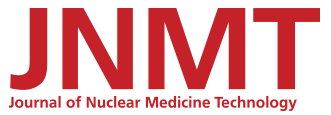
Each year the president of the SNMTS convenes a special meeting called Gateway. The president is allowed to choose a topic to be the focus of intense discussion. This year the topic was professional development.
Why would I choose this topic when there are so many critical issues facing the SNMTS? For some time it has been clear that our organization suffers from an ailment. This ailment is lack of upcoming leaders. There are many reasons for this, among them lack of time, family commitments, and work obligations. A comment by management consultant Quint Studer sums up my reasons focusing on this topic. He said, “We would not allow an untrained clinician to care for a patient, it would be considered malpractice. Not investing in leadership development is the equivalent of organizational malpractice.”
With our recent reorganization, it has become abundantly clear that we needed to invest time and resources into leadership development. The rapidly changing professional environment requires our current leaders to exploit every bit of leadership potential that they possess. The demands are high. We needed to more fully understand each others’ leadership styles and what motivates us to serve the SNMTS. We need a high level of communication and cooperation between leaders, chapters, and members. These were some of the things the Executive Board and committee/task force chairs worked on at the Gateway meeting.
What did we come away with for the investment that we made? First, we came away with a better understanding of how others perceive us (warts and all). We came away with a better understanding of how to assign roles to committee/task force members based on their personal style. We came away with tools to help us communicate better, to understand urgency perceptions, to manage time better, and to relieve the stress we all experience. We now understand the necessity of clarifying roles and responsibilities for all members of the organization. Most important, we realized the necessity of mentoring. Mentors model the behavior others need in order to succeed. They monitor the progress of their protégées. They provide tools needed to help others grow professionally, and, in turn, contribute to the future success of our organization.
If we fail to recognize and nurture the untapped potential in ourselves, we are doomed. Success without successors is failure. However, I’ve always been a glass-half-full sort of person. To find your place in the SNMTS, be secure in your abilities, get to know your strengths (and weaknesses), rely on your experience, see the big picture, and trust your leadership. We have a vision. We have goals and an action plan. Our success is not about personal gain. It’s about how our world (nuclear medicine) will be different when we complete our leadership term.
I urge you to join us on this journey of discovery. I promise, you will grow personally and professionally—and you might even have a little fun along the way.







